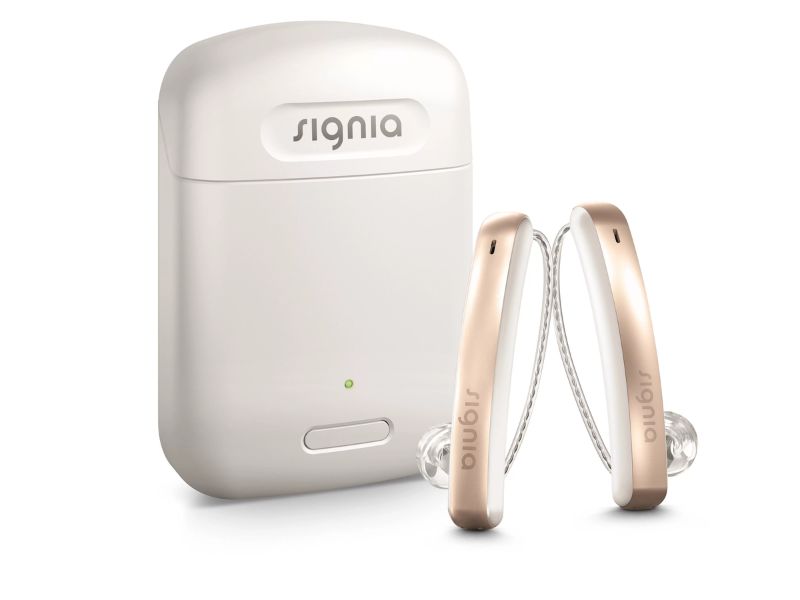
Water resistant hearing aids represent a significant advancement in hearing technology. These hearing aids are designed to endure moisture and humidity and offer enhanced durability and convenience, providing uninterrupted auditory support despite exposure to rain or perspiration.
This feature is especially advantageous for individuals leading active lifestyles or residing in humid climates. It reduces the risk of device malfunction due to moisture, potentially extending the hearing aids’ lifespan.
At South East Hearing Care Centres, we offer a wide range of hearing aids from leading manufacturers. Our highly skilled professionals are ready to help get your hearing clarity back on track. With five conveniently located clinics in Bexhill, Seaford, Horsham, Eastbourne and Chichester, we provide a comfortable, calm environment where our hearing experts can meet with you one-on-one to evaluate your needs and match you with just the right hearing devices to improve your hearing and quality of life. Leveraging the latest advancements from top brands, we take the time to help you choose hearing aids personalised to your lifestyle, budget and type of hearing loss.
Don’t let hearing loss isolate you any longer – call or visit us online today to schedule your comprehensive hearing consultation at one of our clinics.
Benefits of Water Resistant Hearing Aids
Water-resistant hearing aids offer significant benefits to individuals experiencing hearing loss or difficulties, particularly in durability and versatility.
Allows Wearing in Wet Environments
Water-resistant hearing aids allow users to wear them while sweating from exercise, in humid environments, or even in light rain or snow without damaging the devices. Water protection keeps moisture out of sensitive electronic components to keep them functioning normally even when exposed to wet conditions.
Enables Water Activities
Higher water resistance ratings like IP68 allow hearing aid wearers to shower, bathe, or swim while keeping their devices in place. The waterproof coatings ensure water does not penetrate the electronics, so people don’t need to struggle through water sports or swim sessions without being able to hear. Some options even allow diving while wearing hearing aids—the ability to hear clearly, even when immersed, improves safety and comfort.
Reduces the Need for Repairs
With water protection, sudden splashes, spills, or showers won’t result in costly damage and repairs. The waterproof barrier keeps moisture and corrosive contaminants, such as sweat, debris, and cosmetics, from degrading the components. Hearing aid owners can save significantly on manufacturer repairs and replacement devices by investing in water-safe models upfront.
Provides Hearing Safety
For those with severe hearing impairment, wearing hearing aids even while showering or swimming enables better environmental awareness and safety. Without the devices, sounds like approaching people, pouring water, or moving about won’t be audible. With waterproof hearing aids, improved hearing safety reduces the risk of slips, falls, or accidents in wet settings.
Durable, Longer Lifespan
Waterproof coatings protect hearing aids from exposure to repeated moisture, pool chemicals, soaps, shampoos and environmental contaminants. This chemical and corrosion resistance translates into more durable devices with extended operational lifespans than non-water-resistant alternatives. The resilience pays off with years of reliable functionality.
Frequently Asked Questions About Water Resistant and Waterproof Hearing Aids
What should I do if my water resistant hearing aid accidentally gets submerged in water?
If your hearing aid gets submerged in water, immediately remove it and turn it off. Gently dry it with a soft cloth and place it in a dry, warm place for 24 hours before switching it back on.
Are there any specific maintenance steps required for water resistant hearing aids?
Regular maintenance for hearing aids typically includes daily cleaning, regular check-ups, and avoiding extreme temperatures. Always consult your audiologist or manufacturer for specific maintenance steps tailored to your device.
Can I wear my water resistant hearing aid while participating in water sports or swimming?
While participating in water sports or swimming, it is generally not recommended to wear hearing aids, even if they are water-resistant, as these devices may not withstand prolonged or deep water exposure. Some hearing aids are designed for use in swimming or water, so always consult your audiologist to ensure yours are compatible.
What are the signs that water exposure may have damaged my water-resistant hearing aid?
Signs of potential hearing aid damage include:
- Inconsistent or no sound output.
- Corrosion in the battery compartment.
- Distorted sound.
- Physical damage.
If you notice these symptoms, visit an audiologist immediately for proper diagnosis and repair.